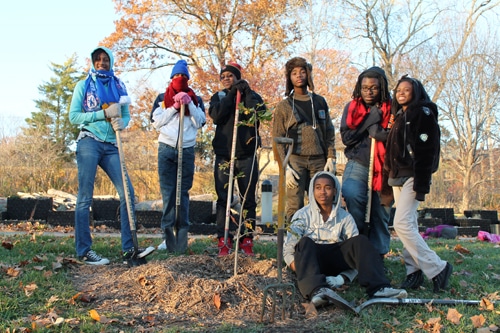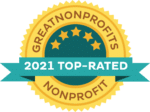ECOS students end each semester with a post-course survey measuring the effectiveness of our instruction. Here are some student responses to two reflection questions.
1) First, explain what was most enjoyable about this semester. Second, explain what most surprised you about what you learned. Third, explain how what you enjoyed and learned will impact your choices.
- What was most enjoyable for me was visiting the farm because we learned how to plant seeds. What most surprised me was learning about all the animals dying because of plastic pollution. Knowing these things will help me make good choices like reducing, reusing and recycling especially when I find litter in my neighborhood.
- What was most enjoyable this semester was having a good time with my peers while learning. What was most surprising is that we know the effects of what we’re doing but it’s still happening, even as it effect the planet and people in it. I’ve noticed myself informing others about what I’ve learned since being a part of Green Works.
- This semester was fun. I went places I would never have thought to go to like the landfill. It feels like a better version of school, sorta like Magic School Bus. We take lots of trips and do hands on activities. I became informed about what happens to all our waste.
- The most enjoyable thing about the semester was when we went to the farm because it reminded me of my country and how my family used to plant. I can’t stop thinking about how all the things we use effect the world. I would like to make choices that impact the natural world less.
2) Why is it important to identify ourselves not just as consumers but as citizens also? Connect your response to how we started our semester by identifying our values. Also consider in your response, the businesses we visited and the speakers we’ve hosted.
- It’s important to identify ourselves as citizens as much as consumers because we’re not only buying things but we’re also living in this world so we are citizens as well. And we impact the world. It’s like the world is our child and we have to take care of it and treat it good. When Dre told us about his aquaponics farm in the city he was thinking about others and how to be a good citizen.
- We have to accept ourselves as wasteful consumers before we can identify as resourceful citizens. We see our wastefulness and we address our problems and start doing things like gardening, reducing, recycling, composting, upcycling and sharing our knowledge like Eco Elvis did.
- At the start of the semester most of us didn’t know what this was all about. At that point we were consumers. But we started understanding the way the world works and I learned how much damage we were causing by being careless. I didn’t know that the phone or even the pen I am using has an effect on someone else’s life. After all this, I think most of us consider ourselves citizens even though it’s difficult to be a real citizen. That means caring about what’s happening here and around the world.
Besides the post-course survey, we’re wrapping up ECOS YEAR 9 with an adventure. This summer, in partnership with Missouri Department of Conservation and Kansas City Parks and Recreation, Green Works students will spend a day at James A Reed Wildlife Memorial Area experiencing archery, canoeing, fishing, orienteering and hiking then cooking a meal over a campfire. What better way to drive the ECOS ethic of taking care of our one-and-only habitat than to spend a day enjoying the natural world?




